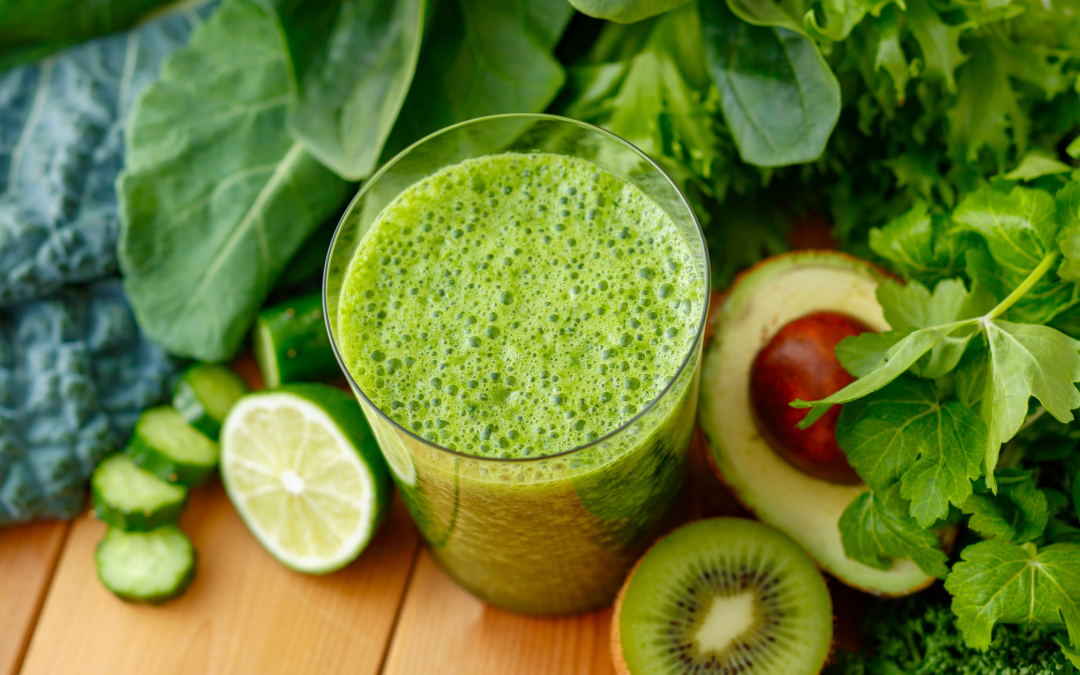Hormonal bloating isn’t just an inconvenience—it’s a signal that your gut, hormones, and digestion aren’t in sync. If you’re experiencing bloating around ovulation, before your period, or persistently throughout the month, it’s important to understand the root cause.
Instead of simply masking the symptoms, let’s dive into what’s really happening and how you can support your digestion and hormone balance naturally.
Balance Blood Sugar for Stable Hormones
Blood sugar fluctuations contribute to fluid retention, inflammation, and bloating, especially when insulin levels spike. Keeping blood sugar balanced can reduce bloating and support overall hormone function.
- Prioritise protein at every meal (e.g., eggs, fish, or lean meats).
- Swap refined carbs for fibre-rich whole foods to keep digestion smooth.
- Avoid skipping meals, as this can cause insulin spikes and digestive sluggishness.
Support Liver Detoxification to Prevent Oestrogen Build-Up
The liver plays a key role in processing excess hormones. If oestrogen isn’t properly metabolised, it can lead to oestrogen dominance, which often causes bloating.
- Increase your intake of cruciferous vegetables (broccoli, kale, cauliflower) to support oestrogen metabolism.
- Reduce your intake of alcohol, caffeine, and processed foods, which slow down liver detoxification.
- Drink lemon water or dandelion tea to promote bile flow and digestion.
Optimise Stomach Acid & Digestive Enzyme Production
Poor digestion can lead to fermentation in the gut, resulting in gas, bloating, and discomfort. Many women experience low stomach acid without realising it, which can impair digestion.
- Consider taking digestive bitters or apple cider vinegar before meals to stimulate stomach acid.
- Eat protein-rich meals, but chew slowly to support digestion.
- Incorporate fermented foods like kimchi, sauerkraut, or kefir to enhance gut bacteria diversity.
Reduce Gut Inflammation
Chronic inflammation in the gut can slow digestion and lead to persistent bloating. Common triggers include gluten, dairy, and processed foods, which can cause irritation for some individuals.
- Drink ginger tea to soothe the digestive tract and reduce inflammation.
- Reduce or eliminate gluten and dairy if you suspect they are causing bloating.
- Identify food sensitivities with functional testing like the Microbiomix Metagenomic Mapping Test, which provides insights into gut bacteria balance and inflammation markers.
Address Stress & the Gut-Brain Connection
Chronic stress elevates cortisol, which can slow digestion and lead to bloating. Stress management is just as important as diet when it comes to supporting gut health.
- Incorporate deep breathing exercises to activate digestion through the vagus nerve.
- Engage in light movement after meals, such as walking or gentle yoga, to encourage digestion.
- Support your nervous system with adaptogenic herbs like ashwagandha or rhodiola, which help regulate cortisol levels.
The Role of Functional Testing
If bloating is a persistent issue despite dietary and lifestyle changes, functional testing can help uncover deeper imbalances.
- Microbiomix Metagenomic Mapping Test – Identifies gut dysbiosis, bacterial overgrowth, and markers for gut inflammation.
- DUTCH Hormone Test – Evaluates oestrogen metabolism and cortisol patterns, which can impact bloating.
- Comprehensive Stool Analysis – Assesses digestion, gut bacteria balance, and inflammatory markers.
These tests provide a data-driven approach to understanding what’s happening in your body and creating a targeted plan for relief.
Want Personalised Support?
If bloating and digestive discomfort are disrupting your daily life, it’s time to get to the root cause.
Book a discovery call here to explore functional testing and personalised nutrition strategies. By addressing digestion, hormone balance, and inflammation, you can feel lighter, more energised, and in control of your health.











